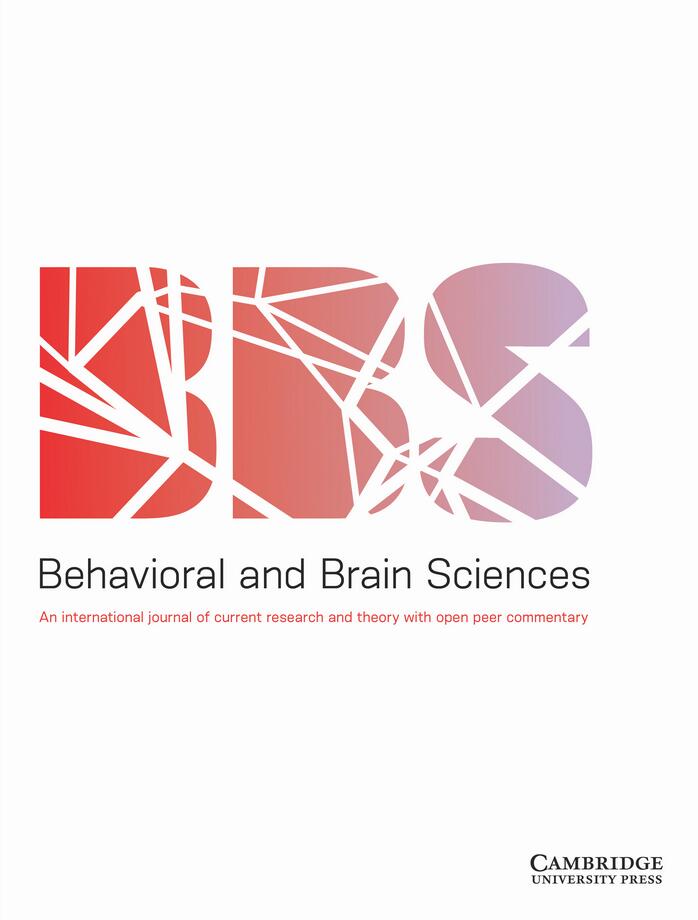“我们是一个人”:群体神话也从自我概念的形成中获得线索。
IF 13.7
1区 心理学
Q1 BEHAVIORAL SCIENCES
引用次数: 0
摘要
Sijilmassi等人认为,解释一个民族共同历史的群体神话通过利用来自健康相互依赖的认知线索而成功和传播。我们提供了另一种相互兼容的解释,将群体神话的成功根植于来自不同认知领域的线索:自我概念的发展。本文章由计算机程序翻译,如有差异,请以英文原文为准。
"We are one people": Group myths also draw cues from self-concept formation.
Sijilmassi et al. suggest that group myths explaining the shared history of a people succeed and propagate by leveraging cognitive cues from fitness interdependence. We offer an alternative and mutually compatible account rooting the success of group myths in cues from a different cognitive domain: The development of self-concepts.
求助全文
通过发布文献求助,成功后即可免费获取论文全文。
去求助
来源期刊

Behavioral and Brain Sciences
医学-行为科学
CiteScore
1.40
自引率
1.70%
发文量
353
期刊介绍:
Behavioral and Brain Sciences (BBS) is a highly respected journal that employs an innovative approach called Open Peer Commentary. This format allows for the publication of noteworthy and contentious research from various fields including psychology, neuroscience, behavioral biology, and cognitive science. Each article is accompanied by 20-40 commentaries from experts across these disciplines, as well as a response from the author themselves. This unique setup creates a captivating forum for the exchange of ideas, critical analysis, and the integration of research within the behavioral and brain sciences, spanning topics from molecular neurobiology and artificial intelligence to the philosophy of the mind.
 求助内容:
求助内容: 应助结果提醒方式:
应助结果提醒方式:


